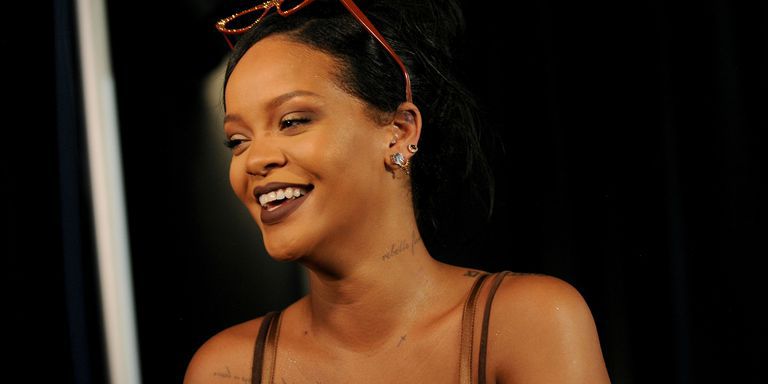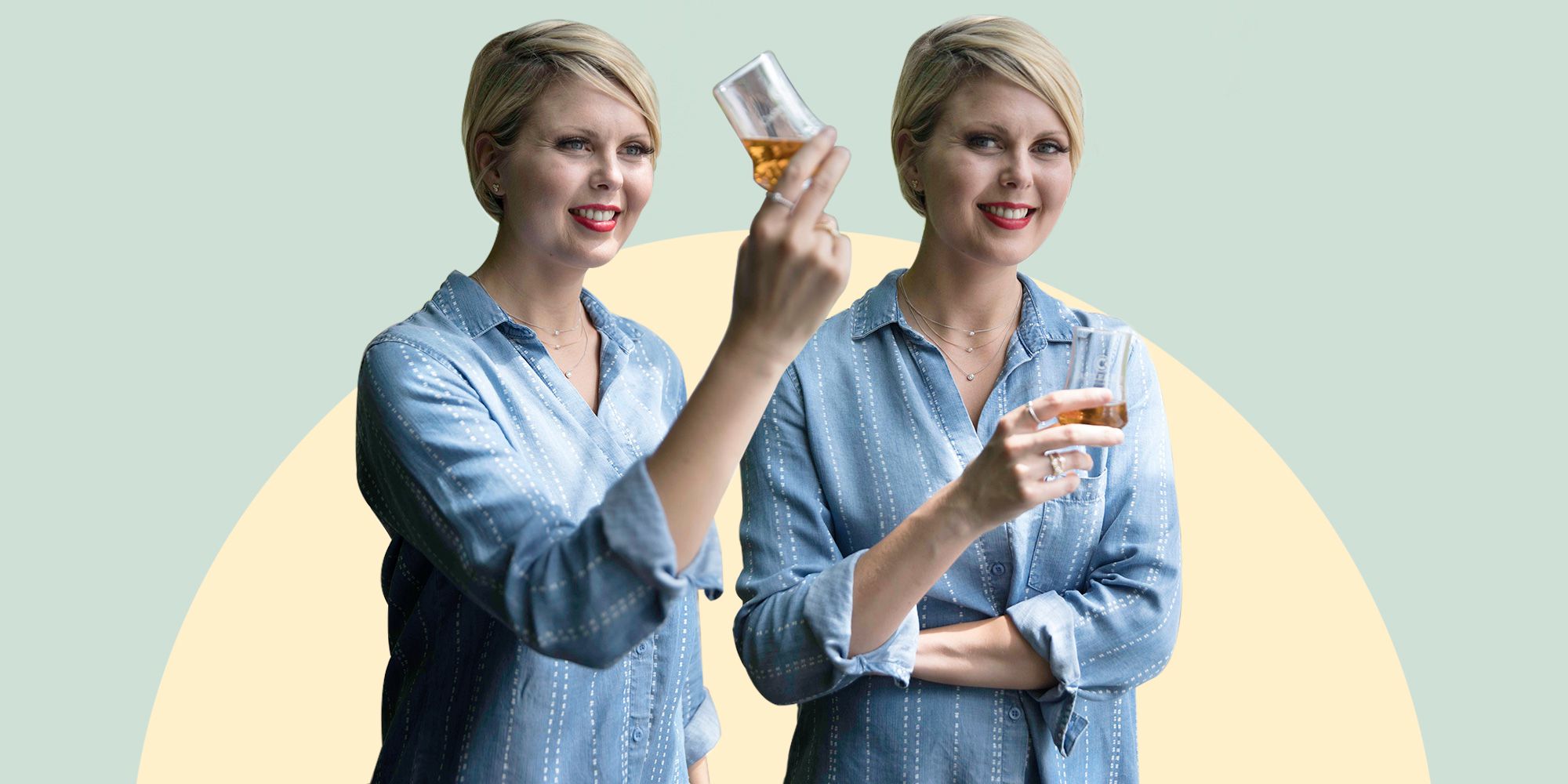At the beginning of New York Fashion Week, a few designers posted beautiful black and white portraits of themselves to Instagram. To accompany hers, Batsheva Hay wrote: “I’m part of the launch of a new seal for female founders in New York State. The symbol denotes a female-founded company, and by displaying it proudly, we show our support for women-owned businesses, giving us the power to close the economic divide more swiftly than ever before.”
Advertisement – Continue Reading Below
When we looked into it a little more, we discovered that this all traced back to Rebecca Minkoff. The fashion designer wants to bring women from many industries—not just fashion—together as part of the Female Founder Collective, a platform that will allow female business leaders to connect and support each other.
We spoke to Minkoff, Hay, Brother Vellies’ Aurora James, and LOLA’s Jordana Kier and Alex Friedman about why the collective is so important and how women can look out for each other in the business world.
Rebecca Minkoff, Rebecca Minkoff
What was behind the founding of the group?
I had been in a meeting with a company that hosts thousands of companies all over the world. There was no way to identify the female-founded companies, and as a colleague and I were leaving the meeting, we said, “Wouldn’t it be easy to just use a symbol?” and then I was like, “Wait—we should come up with a symbol because no one else has done it.”
It would be easily identifiable. You’d know that you’re giving your money to another female-founded company or female-run company. It’s one thing if the company has your name, but there are brands like Away or LOLA that don’t, and the symbol makes it easy.
The initial goal is get the symbol widely known and recognized, get it in use, which is what I’m starting on this week, and then once people begin to recognize and identify the symbol, we’ll be coming back with programming to help new businesses get started. We’ll be able to do pitch competitions and helping women get funding. We’re going to be creating a database in January so that there’s an easy place to locate all the companies that have signed on.
Are there things you think women in business could be talking about more—or are reluctant to talk about?
Advertisement – Continue Reading Below
Women don’t talk about money. If you think about it, we talk about sex all the time. We’re willing to share embarrassing sexual details! But we don’t talk about how much we make or how we ask for a raise with each other—even with friends, right? If you’re not going to talk about it with your friends, then how are you going to get comfortable talking about it at the workplace?
Batsheva Hay, Batsheva
Has there been a time in your career that you’ve been particularly conscious of being a woman?
I think any woman who works in the world is conscious of being a woman. Before this I was a lawyer, so I worked in a big company with a lot of hierarchy and when you’re in corporate spaces, it’s more obvious because you see how most of the partners at a firm are men.
When you’re a founder, we’re under the delusion that, you know, we’re doing our own thing and there are no rules. So I think it’s easy to not see the bigger picture: that you’re still a woman in the world and you’re maybe passed up for some opportunities or not getting investors knocking on your door. It’s harder to be like, Oh, I’m getting treated this way because I’m a woman. You don’t see the bias as much, but we’re still obviously a part of the same society that elevates a male partner over a female partner in a law firm. So this kind of thing is good, to raise awareness and give women a little bit of a boost, or a connection from that identity.
Is there anything you particularly want to connect with women in the industry about?
It’s always good to have allies, to feel partnership and solidarity with people in business. One thing that Rebecca was talking about that really resonated with me was this idea of the glass ceiling and how we all have to compete with each other for a seat at the table—so basically the idea of making more seats at the table for women. When you have a fashion business, it’s like any business. Because of all the structural inequalities in our society, we aren’t necessarily respected the same way.
Advertisement – Continue Reading Below
Advertisement – Continue Reading Below
I’m a creative woman making things that I want people to like but in the end, I want people to buy my stuff. I want people to see my stuff. I want to be able to take meetings with important people.
It’s good to have a community.
We all help each other out. I do find that every big thing that I’ve gotten whether it’s something for a magazine or an introduction to someone who can help me with finding fabrics or stuff like that, it’s through people, you know. People help out people. So the more that you can like extend that feeling of, Hey, how about your sister? is a good thing.
Aurora James, Brother Vellies
Why did you want to get involved with the Female Founder Collective?
I think women supporting women is one of the most important things we can be learning to do right now. And I say “learning,” because I think that historically we may have not always been amazing at this. Society has conditioned us to believe that there can only be one final rose. We need to foster a society of collaboration over competition. I believe that this is something we all want to do, and denoting female created companies on products is a first step to women being able to proactively do that in the marketplace.
Who’s a woman you’ve learned from in your professional life?
My mother. She has always been very good about knowing her value and asking for the things she felt like she deserved.
What’s something you would have liked to ask a female mentor? Alternatively, what’s something you know now from experience that you’d be interested in sharing with other female founders?
Advertisement – Continue Reading Below
My best “womentors” are honestly my friends. We all hold a wealth of knowledge, and I think sharing that knowledge is another thing women also haven’t really been conditioned to do. My best advice would be to talk to your friends about money. How much you’re getting paid, how to ask for a raise, how much you pay for health insurance (if you’re privileged enough to have it)—all of that. It’s an opportunity to learn and grow. And then once you’ve done that, ask a man the same questions.
Jordana Kier and Alex Friedman, LOLA
Why did you want to get involved with the Female Founder Collective?
Jordana Kier: We are honored to be a part of this incredible group of trailblazing New York founders that make up Rebecca Minkoff’s Female Founder Collective. As a New York–founded company, we’re surrounded by a hub of innovative companies and think it’s important to engage with other like-minded leaders to spark a dialogue that encourages greater representation and opportunities for women in business.
Who’s a woman you’ve learned from in your professional life?
Alex Friedman: Each other! What’s great about being so close with your co-founder is learning from and mentoring each other in so many ways. Jordana and I work side by side every day, and we each bring individual strengths to the table. Since we’ve gone through so much together as co-founders, we trust one another to provide constant and clear feedback on how to be the best versions of ourselves.
Has there been a time in your career you’ve been particularly conscious of being a woman?
JK: Pitching a female-focused company to mostly male investors presented unique challenges and opened our eyes to the information gap that exists around women’s reproductive health. We found ourselves walking male investors through “Period 101” PowerPoint slides and even dunking different tampons in water to demonstrate absorbency.
Nonetheless, we were encouraged to find that investors were extremely receptive to LOLA, and understood both the market potential and need for greater industry transparency, once we got past the initial education process. As we continue to grow, we’re proud to keep playing a role in destigmatizing all aspects of reproductive health and educating women (and men!) on all the things we don’t openly talk about.
What’s something you know now from experience that you’d be interested in sharing with other female founders?
JK: It’s essential to develop a network of mentors and people you can rely on for honest feedback and advice. We’ve been very lucky to have cultivated a network of people who are supportive, but who also provide tough love and aren’t just saying “great job” all the time. Objective, actionable feedback has been invaluable throughout my entrepreneurial journey.
AF: I had to get comfortable with building the plane as I fly it. Even three years post-launch, the learning curve stays steep, and we’re always trying to scale while operating on a daily basis. It’s key to proactively manage your time and energy to ensure you are able to multitask, move quickly, and think strategically.
Follow the Female Founder Collective on Instagram.













